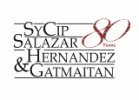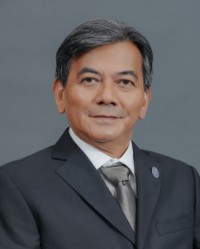Corporate Immigration 2025
Philippines
1. Policy
1.1 Immigration Policy
Immigration policy is governed by the Philippine Immigration Act of 1940. This is an old statute which was enacted long before the advent of global trade and mobility. Subsequent laws addressed the need to keep up with present business and economic realities insofar as immigration policy is concerned, and special visas were created for specific sectors such as economic zone locators, regional headquarters, retirees, and other investors. This was welcomed by foreign investors and the Philippine business community as it created significant economic activity in the Philippines.
1.2 Upcoming Policy Changes
The Bureau of Immigration Modernization Act is currently being deliberated in Philippine legislature. If passed into law, it will update the Philippine Immigration Act of 1940 with new visa classifications, among other important changes.
2. Visa Options
2.1 Sponsor-Based Employment Visas
There are four types of sponsor-based employment visas for foreign nationals intending to work in the Philippines, as follows.
A pre-arranged employment visa (9G). This is the generic work visa for foreign nationals who will be engaged by Philippine entities in authorised employment for the duration granted by the Bureau of Immigration.
- The Treaty Trader (9D). This applies for foreign nationals from the United States, Japan, or Germany who wish solely to conduct trade or commerce between the Philippines and their home country, as well as to direct the operations of a Philippine-based company.
- The Special Non-Immigrant Visa under Executive Order 226, as amended by Republic Act No. 8756. This is for foreign executives who will work for their employers’ regional headquarters in the Philippines.
- The PEZA, or Special Non-Immigrant Visa, issued by the Department of Justice to foreign employees of investors registered with the Philippine Economic Zone Authority.
2.2 Pathways to Permanent Residence
Sponsor-based work visas do not lead to permanent residence in the Philippines.
To obtain permanent residency, applicants must meet the conditions of their applicable selection. For example, the 13(a) Non-Quota Immigrant Visa is accessible to foreign nationals married to Filipino citizens, whereas the Quota Immigrant Visa is reserved for people with extraordinary qualifications or significant economic contributions, with a yearly limit of 50 visas per nationality.
Residency visas such as SIRV and SRRV also give permanent residency to qualified applicants who fulfil and will continue to fulfil the basic requirements of such visas. Another viable alternative is the Special Visa for Employment Generation (SVEG), which is issued to foreign nationals who employ at least ten full-time Filipino employees. This visa provides limitless stay and repeated entry privileges, similar to permanent residency, and is frequently seen as a direct route for business owners or investors.
2.3 Unsponsored Work and Investment Visas
There are two primary options available for unsponsored work and investment visas, as follows.
- The Special Investors Resident Visa, available to a foreign national who meets specific conditions. Issued by the Board of Investments, the visa allows the holder to reside in the Philippines indefinitely with multiple entry privileges, as long as their investment remains in the Philippines.
- The Special Retiree Resident Visa offered by the Philippine Retirement Authority to qualified foreign nationals considering the Philippines as their retirement destination. The visa allows the foreign national to stay indefinitely in the country, among other privileges.
2.4 Business Visitors
Business visitors going to the Philippines may engage in a variety of activities, such as:
- business or commercial, industrial, or professional activities, but these must be temporary in nature (this category would include those who are attending conferences and business meetings); and
- medical tourism.
Visitors from some countries may enter the Philippines without a visa for business (or tourism) for up to 30 days. Visa requirements for all countries can be found at eVisaPH.
2.5 Pre-Travel Authorisation
All travellers (including Philippine citizens and residents) must register using the eTravel system, which is an online arrival form that replaces the former One Health Pass. This form is completed 72 hours before arrival in the Philippines and is required for both immigration and health clearance.
2.6 Remote Working
Current statues and regulations do not specifically recognise the visa status of foreign remote workers employed by companies with no legal presence in the Philippines. This gap could give rise to complications, particularly if the remote worker intends to stay in the country for an extended period. In May 2023, the Bureau of Immigration revealed plans to launch a digital nomad visa. This would allow foreign nationals to stay in the Philippines for an extended period to work remotely. It will initially be valid for a year, to be extended by a further year if the foreign national meets specific conditions. More information is expected to be available this year.
3. Visa Requirements
3.1 Prerequisite Language Requirements
There are no prerequisite language requirements to obtain a visa, unless relevant to the employment for which the work visa is being applied for.
3.2 Medical Certificates or Vaccinations
Some foreign nationals must undergo medical examinations with the Bureau of Quarantine before obtaining work visas.
3.3 Sponsor Requirements
Foreign nationals applying for sponsor-based employment visas must first obtain an alien employment permit from the Department of Labor and Employment. This process assesses the applicant’s suitability vis-à-vis the position applied for, and includes a labour market test. The objective is to establish the non-availability of a Philippine citizen capable and willing to assume the position in question. With respect to salary, applicants for a Special Non-Immigrant Visa under EO 226 must receive a salary of at least USD12,000 per annum, to be paid by the employer’s regional headquarters. While there is no minimum salary threshold for other types of work visas, the compensation of the foreign national must be in keeping with their position and financial requirements while in the country.
3.4 Employment-Based Visa Limitations
The work visa is employer-specific, and is limited only to the position applied for.
3.5 Criminal Background Checks
Criminal background checks are mandatory for foreign citizens applying for long-term work visas in the Philippines, including work permits, permanent residency, and some special visas. The Bureau of Immigration carries out a derogatory check prior to accepting the submitted application. For certain types of residency visas, candidates usually have to present police clearance from their place of origin or residence, as well as a clearance from the Philippine National Bureau of Investigation (NBI) once they arrive in the Philippines. These documents serve to certify that the applicant has no criminal history or does not pose as a security risk. Visa or residency applications may be denied if the applicant has a criminal record, notably for crimes such as moral turpitude, drug-related offenses, human trafficking, terrorism, or other major violations of Philippine law. Even minor violations may cause alarm, particularly if they show a history of illegal behaviour. The Bureau of Immigration reserves the right to refuse entrance or residency based on these findings, and applicants who lie about their criminal background or submit fraudulent documents may be blacklisted or deported. Therefore, it is critical to offer precise and full documents, including criminal-record certifications, to ensure a successful application.
3.6 Financial Resources
Applicants may be required to demonstrate financial capacity depending on the type of visa they are requesting. For employment-based visas, the sponsoring employer must demonstrate the financial capacity to pay the foreign national’s salary and other job benefits by presenting corporate financial documents, employment contracts and proof of business legitimacy with the visa application.
Residency visas for investors and retirees typically require the applicant to submit proof of inward remittance of the required amount of investment/deposit for such visas among other requirements.
4. Immigration Process
4.1 Method of Submission
Visa and work permit application procedures are primarily paper-based, while some steps may incorporate electronic submission or online appointment scheduling. Work visas require applicants to submit their Alien Employment Permit (AEP) applications in person or through an accredited representative to the Bureau of Immigration (BI) and the Department of Labor and Employment (DOLE) ahead of time. The filing process is usually managed by the employer, and supporting documents such as employment contracts, corporation registration documents, medical certificates, and police clearances must be submitted in physical form, with original signatures and, if necessary, notarisation. Although the Bureau of Immigration and other government organisations have adopted online appointment booking systems and limited online services, most visa categories still do not have complete electronic filing and document-uploading capabilities. For example, the DOLE supports online filing of AEP applications, but supporting documentation must be delivered in person for verification. Foreign-issued documents must also be validated or apostilled and physically provided as part of the application process. While digital technologies are gradually being connected, the Philippine immigration system still relies on in-person, paper-based submissions for visa and work-permit processing.
4.2 Country of Application
When required, entry visa applications to the Philippines are usually made at a Philippine Consulate in the applicant’s country of origin or legal residence.
Work visas, immigrant visa and residency visas, on the other hand, are typically processed in-country. Applicants are expected to enter the Philippines on a tourist visa or through visa-free entry and then convert their status after they obtain approval from the Bureau of Immigration and other relevant agencies.
4.3 Visa Processing Times
The current processing time for 9G, 9D and EO226 visas is approximately two to three months. PEZA visas are processed within one to two months.
4.4 Travel Restrictions Once Application Filed
Once the application has been submitted, applicants are advised to remain in the country until the visa is approved to avoid delays and complications in processing. If applicants need to leave urgently and their visa is approved while abroad, they are required to undergo a revalidation process within 15 days from arrival. This does not apply to PEZA visa applications; a new application should be filed if the applicant is abroad at the time of visa approval.
4.5 Expedited Visa Processes
There is no formal and guaranteed way to expedite processing times. However, the Bureau of Immigration may consider urgent travel a grounds to expedite processing if the application is already at the implementation stage.
4.6 Post-Visa Requirements
Foreign nationals with approved visas must obtain an Alien Certificate of Registration Identity Card (ACR I-Card). This must be presented along with their passport each time they leave and enter the country. Holders of work visas without multiple entry privileges must pay immigration exit fees before departing. The official receipt should be retained by the foreign national and presented upon return to the country.
All ACR I-Card holders must report in person during the first 60 days of each calendar year and pay the required fees, in accordance with the annual reporting requirement.
5. Immigration Costs
5.1 Typical Cost of a Sponsored Employment
The typical cost of a sponsored employment visa is between USD1,500 and USD2,000 for the principal applicant. This covers government fees, charges and other expenses, and excludes legal fees.
5.2 Payment of Visa Costs
Whether visa costs for an employment visa are paid by the individual or the employer is a matter of agreement between the individual and the employer.
6. Enforcement
6.1 Enforcement Action
Any violation of immigration laws and regulations may give rise to enforcement action against an erring individual and sponsor. Notable infractions include working without a valid permit and/or work visa, submitting spurious/fake documents to support an application, and overstaying.
6.2 Employer Obligations
An employer must ensure that its foreign nationals have the appropriate permit and/or work visa before commencing work. Upon termination of employment, the employer must comply with visa downgrading procedures and other exit formalities for its foreign nationals. Any violation could lead to financial penalties.
6.3 Right to Work Check Requirements
An employer has the right to check whether a foreign national that it seeks to employ is authorised to work in the Philippines. This typically involves requiring proof of the foreign national’s visa status.
7. Accompanying Family Members/Dependants
7.1 Recognised Family Relationships
For a dependant visa, the Philippines recognises relationships between married spouses and children under the age of 21.
7.2 Dependant Visas
The holder of a dependent visa is not permitted to work in the Philippines. If they wish to do so, they must relinquish their current visa and file a separate work-visa application.
SyCip Salazar Hernandez & Gatmaitan
SyCipLaw Center
105 Paseo de Roxas St.
Makati City 1229
Philippines
+632 8982 3500
+632 8848 2030
sshg@syciplaw.com www.syciplaw.com


